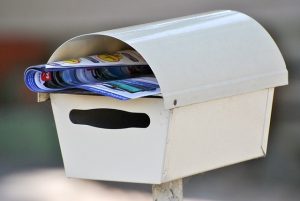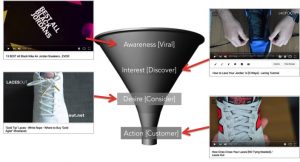AdWords has several benefits. It allows you to get instant traffic, for starters. No more waiting months for your SEO efforts to pan out. It’s also traffic you can direct to any web page you want, and traffic that can be turned on or off at a moment’s notice.
There are a few glitches, though. It’s expensive, and getting more so. And any mistakes you make are on you – there are no refunds. AdWords also has a reputation for a steep learning curve, too, which is not a great match with that “no refunds” clause.
All those shortcomings add up. They may be part of why so few small businesses advertise online. In our WASP 2016 “State of Small Business Report,” we discovered only 35% of small businesses are doing any online advertising.
But simply bowing out because online advertising is hard may not be the right move. A well-run AdWords account is often the best advertising investment a company can make, especially if you can get past the most common mistakes.
Here’s how to do exactly that.
1) Don’t insist on being in the 1st position.
The first position ad is often unnecessarily expensive. It also tends to get a lot of non-converting clicks.
But many new advertisers often insist on being there. CEOs are notorious for this. And if you pay enough, Google might even let you hold that top position. But golly, you will pay for it.
What to do instead? Let the egomaniacs have first position. Your ads can sit lower and still get plenty of traffic. You might see your conversion rates improve, too.

2) Set up conversion tracking.
Is your AdWords account working? Too many small businesses really don’t know. They’re just paying for the traffic and hoping for the best.
If that’s you, it’s time to level up. Even if you only want to track views of a key page, set up tracking to see what people are really doing after they click on your ads.
Or even better: Offer a nice incentive to new customers. Mention it in your ads. Make them take a specific action on your site to get the incentive (like signing up for your email list, for example), then track that. Assign a value to each conversion.
3) Check your AdWords account at least once a month.
It’s easy for busy owners to get pulled away to a thousand other tasks. They often forget their AdWords account, or just assume all is well.
The trouble with this is that AdWords account performance shifts over time. New advertisers step in, old advertisers step out. New features are launched, and old features get retired.
The solution? Check your account at least once a month. It only takes a few minutes, and you’ll probably save yourself more than enough money to cover the cost of your time.

Caption: Google’s new Expanded Text Ads have rolled out. Evolutions like this are why you want to check your AdWords account on a regular basis.
4) Use landing pages, or at least don’t send all your traffic to your homepage.
If you want people to take a specific action, nothing works as well as focusing their attention with a landing page. In the same vein, sending your visitors to your homepage (instead of, say, a product page or a landing page) can seriously hurt conversion rates.
5) Break your keywords up into tightly related ad groups.
Got all your keywords in one ad group? That means you’re using the same ad for all those keywords. Which means your ad is probably getting a far lower click-through rate than you could be getting.
The solution? Break your campaigns up into at least 3-7 ad groups. Make sure all the keywords in each ad group are tightly related. Write customized ad copy for each one of those ad groups. Watch your click rates go up and your cost per click go down.
6) Add negative keywords.
Negative keywords are terms you can add to campaigns or ad groups so your ads don’t show up when those terms are used. My favorite example of this is from a local law firm that specializes in family law. They had been running ads for adoption legal support for years – spending hundreds of dollars a month.
The problem was, their ads were showing for “TX child adoption” searches… but also for “TX dog adoption” searches.

7) Avoid high-traffic keywords.
High-volume keywords tend to be too general to convert well. The AdWords system knows this. It will often discourage you from bidding on terms like this by setting your minimum bid to something outrageously high, like $ 30 a click (or more).
Do this instead: Find two-word or three-word phrases. Bid on those.
Conclusion
There are other mistakes you could make in AdWords (I’ve made many myself), but those are the most common and tend to be the most expensive. Get these issues tied down, and you should see a big jump in your profitability with pay per click.
Digital & Social Articles on Business 2 Community(59)







